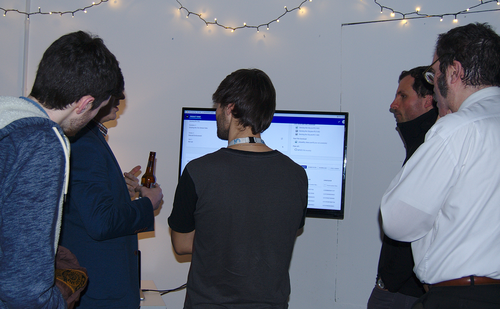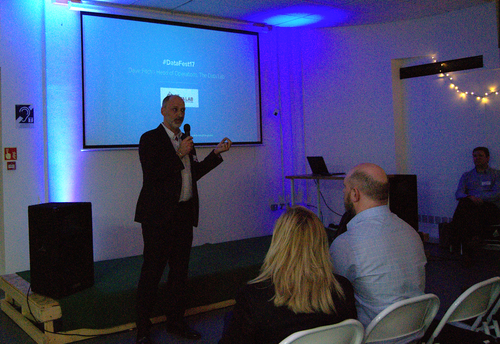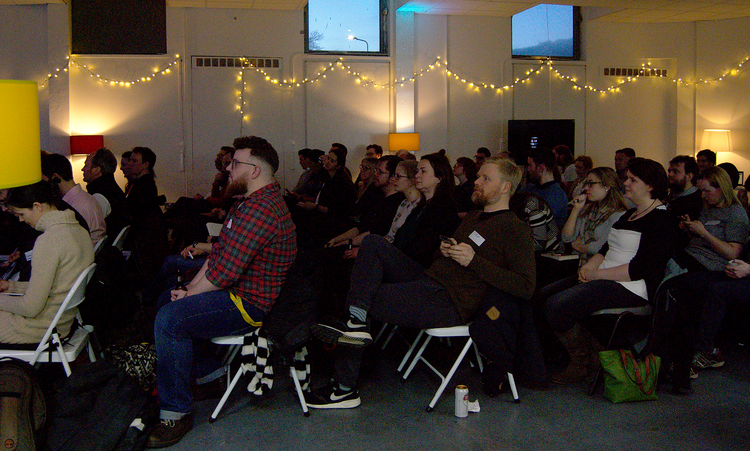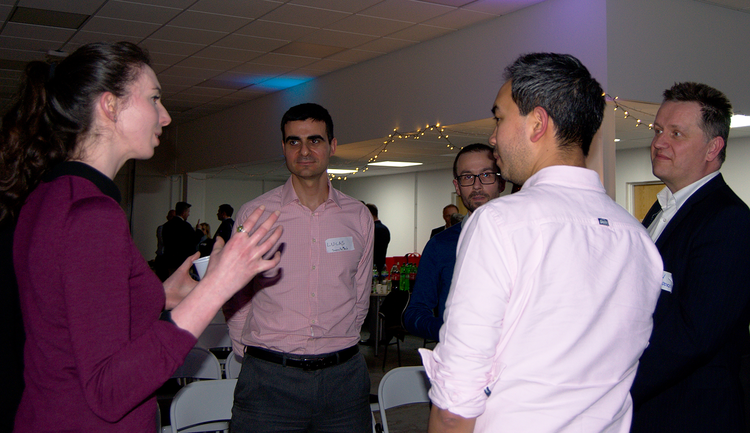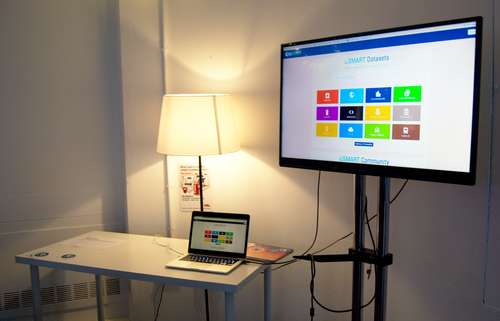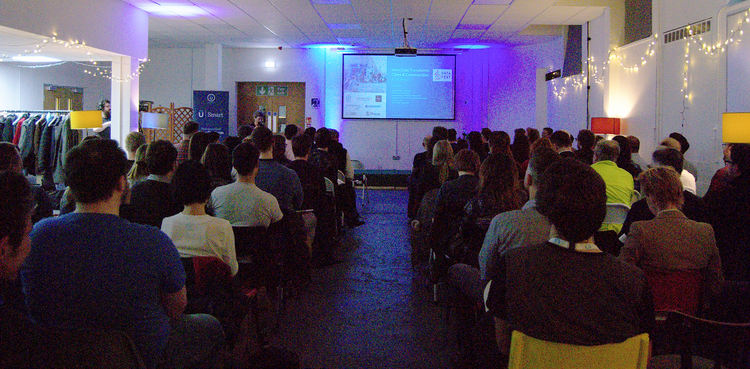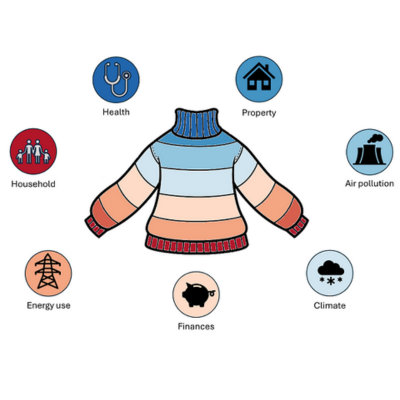A great crowd of a 100 data enthusiasts gathered for our ‘How data transforms cities and communities’ event at the end of March, as part of #DataFest17.
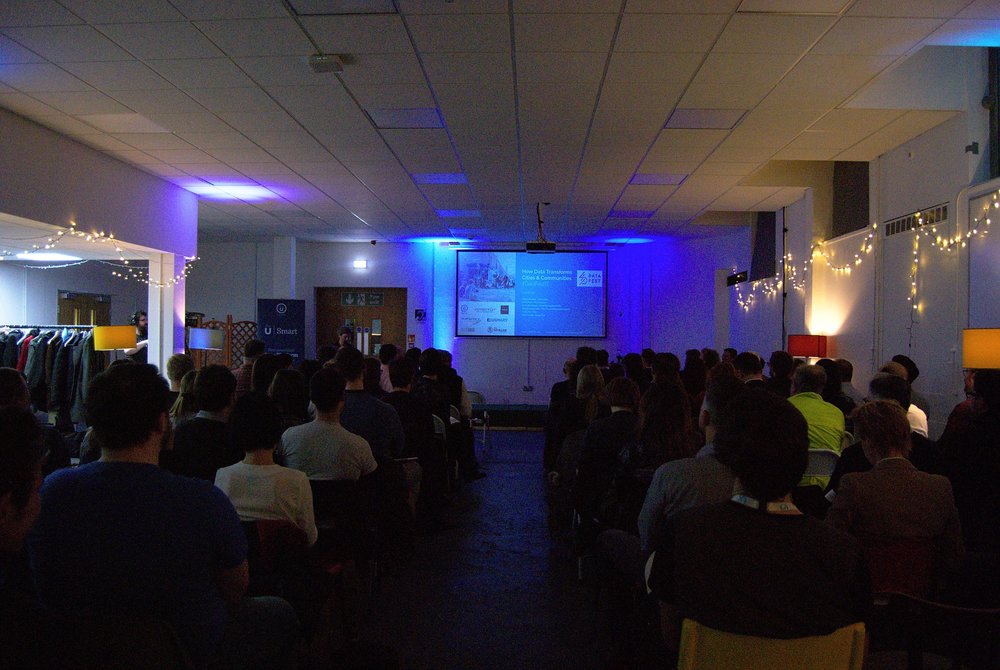
We were seeking answers, with the help of our speakers and the participants, to how data and digital technologies can help solve the challenges caused by the rapid urbanisation transforming our cities and communities.
Cities are the powerhouses of the world’s economy. With more than half of the world’s population now living in cities, business is taking full advantage of the opportunities this creates. But there are also challenges:
- How do businesses optimise their operations for each city?
- How does government shape cities & services to make them more efficient?
- How can citizens help to create a more livable community?
The solution - data integration and sharing across organisations
Cities and communities are increasingly using data and digital technologies to manage urban congestion, maximise energy efficiency, enhance public security and resilience, allocate resources based on real-time evidence and turn operational data into insight, information and knowledge.
With data businesses, government and citizens can work together to create more livable cities and drive change from the bottom up.
Here are 12 key lessons we learned from our speakers:
Brian McGuigan - Commercial Director, Europe, Smart City Solutions - Silver Spring Networks
Ritchie Somerville - Innovation and Futures Manager - The City of Edinburgh Council
Chris Yiu - General Manager - Uber
Tobi Tonner - CTO - UrbanTide
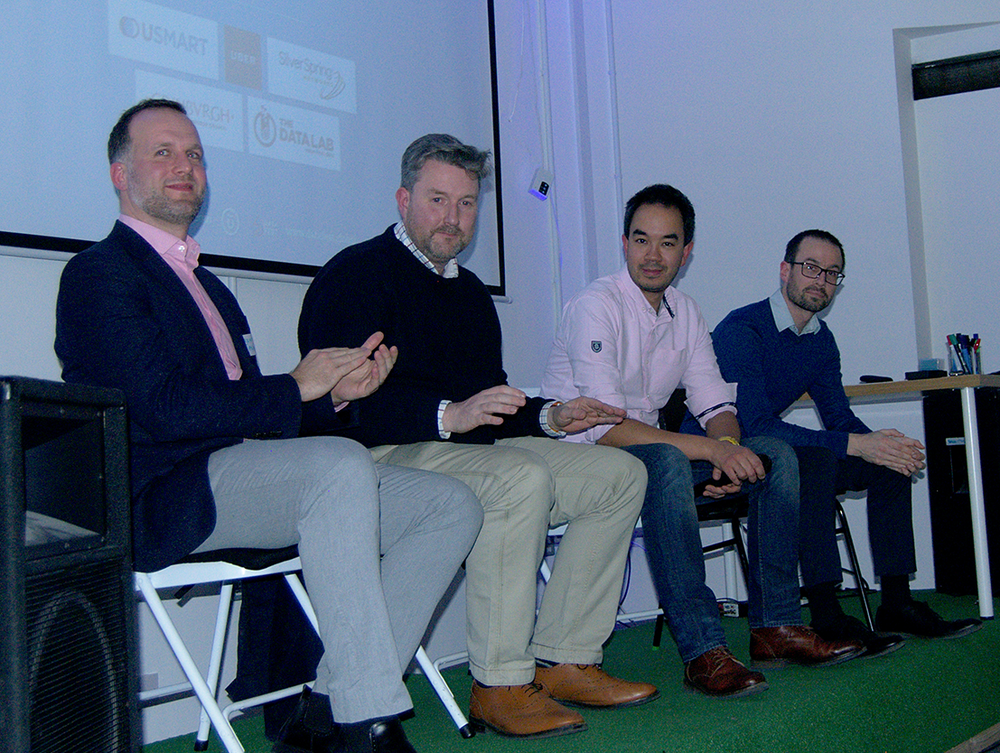
1. Open ecosystems
There is no one solution that fits all when it comes to smart city technology - cities all want different, tailored solutions. As an answer to this and with the innovation cycle accelerating, the open source ecosystem model is being increasingly embraced.
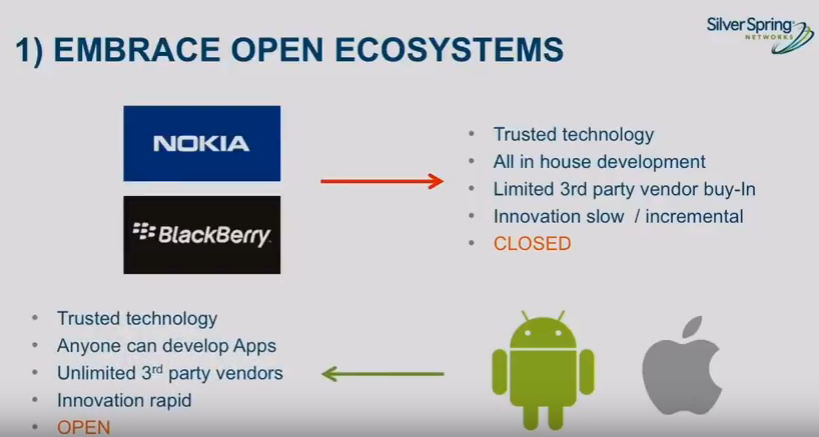
2) An ongoing process of iteration
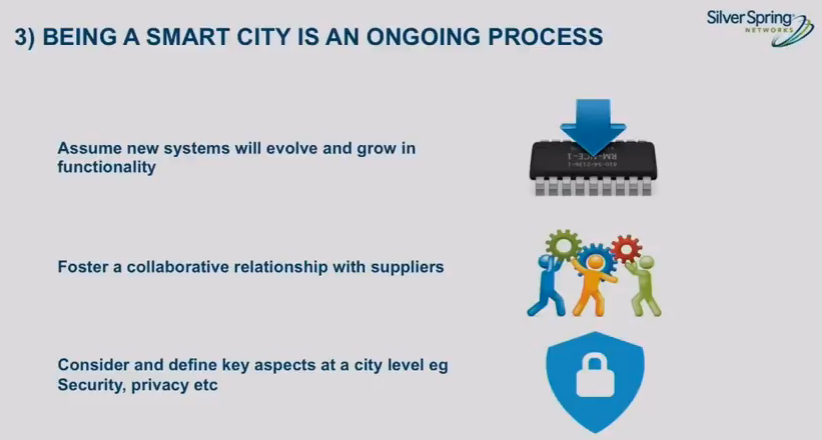
3) Smart city cyber security is becoming more and more important

4) Cities are changing the way they interact with citizens
Citizen benefits rather than technology demonstration is at the core of smart city solutions today.
3. #smartcities trend: citizens at the forefront of #smartcity transformation @silverspringnet pic.twitter.com/s4iXGAj6hh
— UrbanTide (@UrbanTide) March 21, 2017
5) Are we creating cultures that are ready for data?
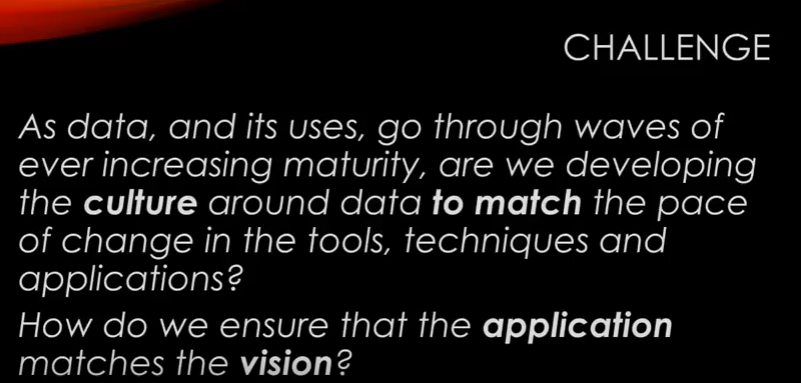
6) Overcoming fear
Often a collective political culture of fear of making mistakes causes people to struggle to see the true value of the data they create and curate. Important to address this challenge, especially in mature organisations, to decouple from this mindset and understand that sharing is a good thing and collaboration can lead to interesting results.
7) The technology is the vehicle but the data is what allows us to do things
Data and the impact is where the value is. Organisations need to first manage data and then technology.
'Data is the lifeblood to make decisions on a cities future' says @rgsom at @UrbanTide #data event https://t.co/Lv0qPq79jd
— Steven Revill (@FutureRevill) March 21, 2017
8) Uber data can reveal a lot about how cities move
#ubermovement helping with #cityplanning & #transport optimization for #smartcities & #smartdecisions with #data @UberUK @clry2 pic.twitter.com/fLwzl0NN9f
— UrbanTide (@UrbanTide) March 21, 2017
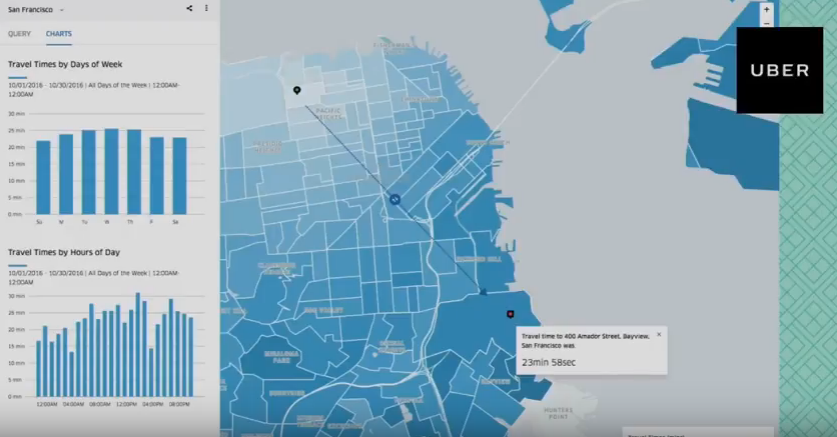
9) Cars are parked 95% of the time and only move 5% of the time
One solution to easing congestion could be, for example, to connect up cross-city journeys done on public transport and the first or last mile of that trip to people’s front door with Uber.
1/3 of the #uber trips in #London were to/from tube stations. #publictransport & #uber to help ease traffic in #cities #data #DataFest17 pic.twitter.com/VM5hmXpMBk
— UrbanTide (@UrbanTide) March 21, 2017
10) Valuable data is often sitting in silos, collected, used once and then forgotten about
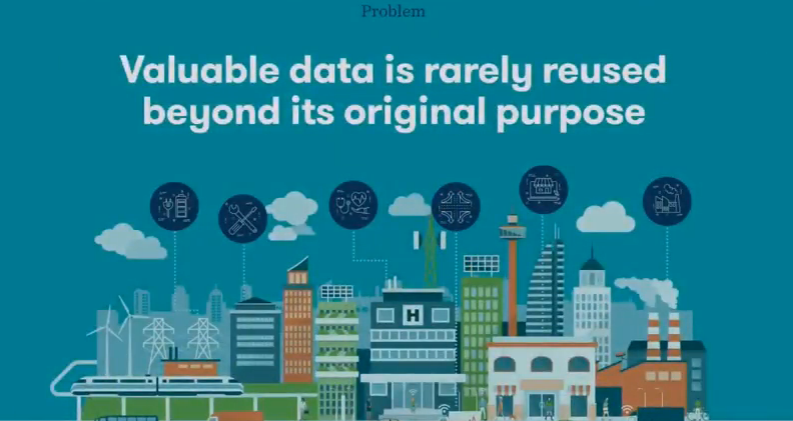
"Valuable data is rarely re-used beyond its original purpose" <- the #smartcity problem in a nutshell by Tobi @UrbanTide #DataFest17
— Dave Fitch (@dere_street) March 21, 2017
11) How do we price the data? How do we create markets for data?
Copenhagen and London are currently exploring this option. As an example however, cellular data is currently priced so high that it is not affordable for local governments, and the cost outweighs currently the benefit of having that data. Most of the data markets are focused on customer data but real-time data will be a game changer for city data marketplaces.
12) Legacy systems can act as barriers
We need to overcome to better share and extract data. Very often data is trapped in systems of records and not in systems of reference.
And finally keep in mind:
#Quantitative #data Vs #Qualitative data - @rgsom: data is good in predicting probability not in showing reality - there is always a bias pic.twitter.com/LvmeggQMCt
— UrbanTide (@UrbanTide) March 21, 2017
You can watch all the presentations in full here.
Ritchie Somerville - Innovation and Futures Manager - The City of Edinburgh Council (27:00)
Chris Yiu - General Manager - Uber (39:00)
Tobi Tonner - CTO - UrbanTide (55:00)
